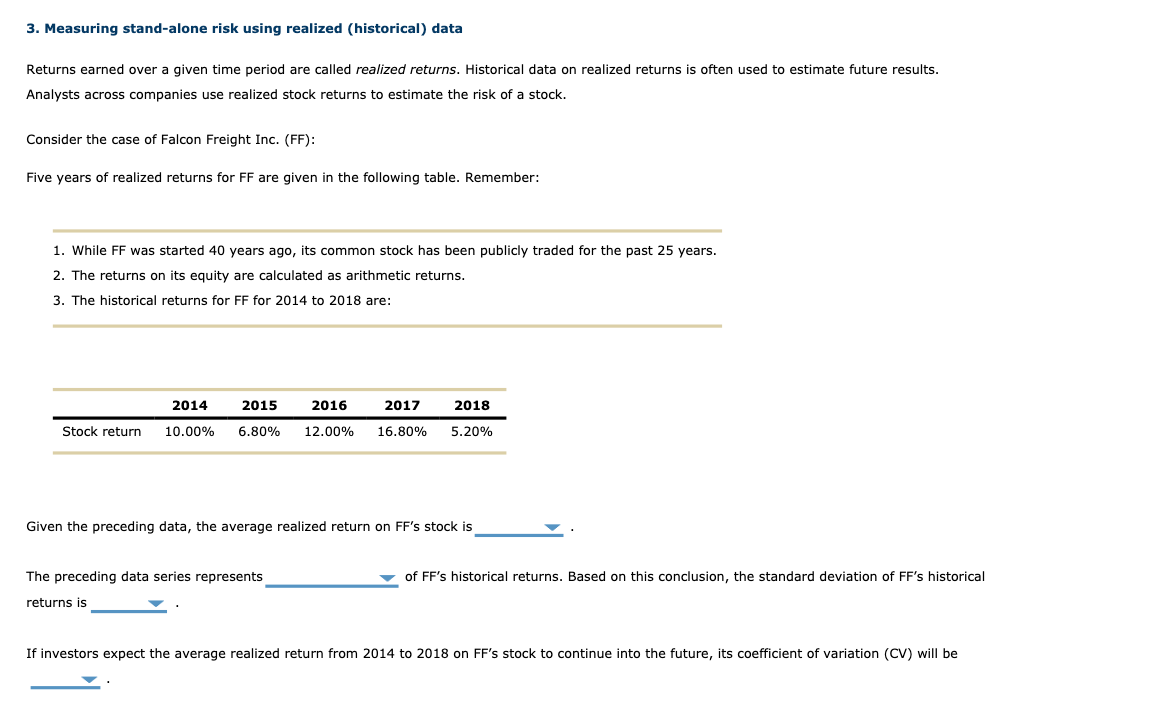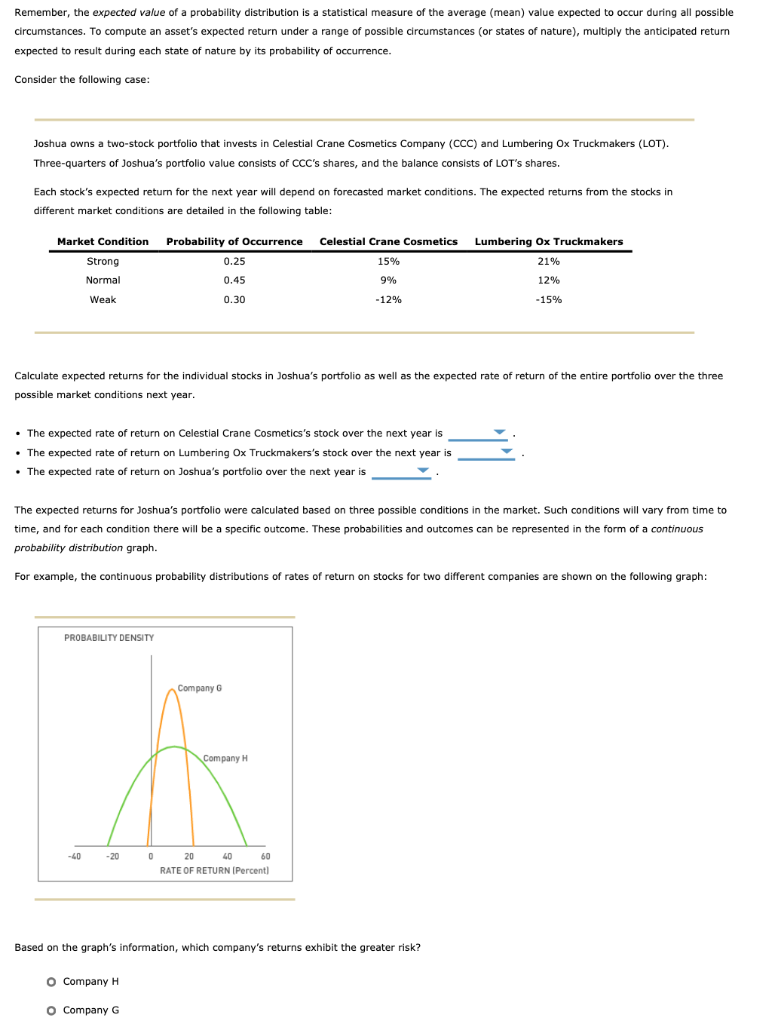

3. Measuring stand-alone risk using realized (historical) data Returns earned over a given time period are called realized returns. Historical data on realized returns is often used to estimate future results. Analysts across companies use realized stock returns to estimate the risk of a stock. Consider the case of Falcon Freight Inc. (FF): Five years of realized returns for FF are given in the following table. Remember: 1. While FF was started 40 years ago, its common stock has been publicly traded for the past 25 years. 2. The returns on its equity are calculated as arithmetic returns. 3. The historical returns for FF for 2014 to 2018 are: 2014 2015 2016 2017 2018 Stock return 10.00% 6.80% 12.00% 16.80% 5.20% Given the preceding data, the average realized return on FF's stock is The preceding data series represents of FF's historical returns. Based on this conclusion, the standard deviation of FF's historical returns is If investors expect the average realized return from 2014 to 2018 on FF's stock to continue into the future, its coefficient of variation (CV) will be Remember, the expected value of a probability distribution is a statistical measure of the average (mean) value expected to occur during all possible circumstances. To compute an asset's expected return under a range of possible circumstances (or states of nature), multiply the anticipated return expected to result during each state of nature by its probability of occurrence. . Consider the following case: : Joshua owns a two-stock portfolio that invests in Celestial Crane Cosmetics Company (CCC) and Lumbering Ox Truckmakers (LOT). Three-quarters of Joshua's portfolio value consists of CCC's shares, and the balance consists of LOT's shares. . Each stock's expected return for the next year will depend on forecasted market conditions. The expected returns from the stocks in different market conditions are detailed in the following table: Market Condition Probability of Occurrence Celestial Crane Cosmetics Lumbering Ox Truckmakers 15% 21% Normal 0.45 9% 12% Strong 0.25 Weak 0.30 -12% -15% Calculate expected returns for the individual stocks in Joshua's portfolio as well as the expected rate of return of the entire portfolio over the three possible market conditions next year. . The expected rate of return on Celestial Crane Cosmetics's stock over the next year is The expected rate of return on Lumbering Ox Truckmakers's stock over the next year is The expected rate of return on Joshua's portfolio over the next year is The expected returns for Joshua's portfolio were calculated based on three possible conditions in the market. Such conditions will vary from time to time, and for each condition there will be a specific outcome. These probabilities and outcomes can be represented in the form of a continuous probability distribution graph. For example, the continuous probability distributions of rates of return on stocks for two different companies are shown on the following graph: PROBABILITY DENSITY Company G Company H -40 -20 0 20 40 60 RATE OF RETURN (Percent) Based on the graph's information, which company's returns exhibit the greater risk? O Company H O Company G








